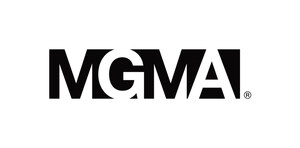MGMA Data Finds Non-Academic Hospital System Physicians Earn As Much As $123,000 More Than Their Academic Counterparts
Starting salaries of non-academic physicians follow suit with first year candidates earning up to $86,000 more than their academic counterparts in the first year
ENGLEWOOD, Colo., Nov. 29, 2017 /PRNewswire/ -- As part of Medical Group Management Association's 2017 MGMA DataDive Physician Compensation and Production Survey, MGMA examined compensation for physicians in academic versus non-academic institutions. Among the noteworthy differences, is earnings of nearly $123,000 more for non-academic hospital system physicians.
When comparing physicians that work in an academic setting versus a hospital/IDS-owned practice, compensation differences are present across the board. With the greatest differential, specialty care physicians in non-academic hospital systems make $122,795 more than those physicians in an academic system for full-time, fully clinical physicians. Primary care physicians earn $57,129 more.
"MGMA's Physician Compensation and Production data is the most comprehensive in the nation," said Dr. Halee Fischer-Wright, MD, MMM, FAAP, CMPE, President and Chief Executive Officer at MGMA. "This data arms practice owners and operators with the information needed to better run their practices and stay educated about what others in the industry are doing."
In addition to general salary differentials, starting salaries also saw a stark difference between academic and non-academic hospital systems. New hires, who are first year post-residency or fellowship, earned more starting out in a non-academic setting than an academic setting across the board. The greatest difference was seen in primary care where the difference can be upwards of $86,000 more than their academic counterparts.
Based on comparative data of more than 120,000 providers across more than 6,600 groups, MGMA's Physician Compensation and Production Survey is one of the most comprehensive sample of any physician compensation survey in the United States. The survey represents a variety of practice types including physician-owned, hospital-owned, academic practices, as well as providers from across the nation at small and large practices. The academic subset data represents data from more than 17,400 providers in over 437 organizations, compared to non-academic data representing more than 96,000 providers in over 5,000 organizations.
Other highlights from the data set include:
- PRODUCTIVITY: Looking at the difference of work RVUs between non-academic and academic providers, the biggest difference reported is in specialty care physicians. Specialty care, non-academic physicians report 1,200 more work RVUs per year than academic physicians, namely due to academic providers reporting less billable clinical time than non-academic providers.
- COMPENSATION BASED ON RESEARCH: Specialty care physicians who are full-time, fully clinical reported earning a base compensation of $67,290 more than those physicians who were 67 percent or more research. However, primary care physicians who were full time, yet mostly research, reported making $9,556 more, in base compensation, then those physicians who were full time yet mostly clinical.
MGMA's Physician Compensation and Production Survey is the most trusted compensation survey in the U.S., undergoing a rigorous evaluation and inspection.
About MGMA
Medical Group Management Association (MGMA) is the premier association for professionals who lead medical practice. Since 1926, through data, people, insights, and advocacy, MGMA empowers medical group practices to innovate and create meaningful change in healthcare. With a membership of more than 40,000 medical practice administrators, executives, and leaders, MGMA represents more than 12,500 organizations of all sizes, types, structures and specialties that deliver almost half of the healthcare in the United States. www.mgma.com
SOURCE Medical Group Management Association
Related Links
WANT YOUR COMPANY'S NEWS FEATURED ON PRNEWSWIRE.COM?
Newsrooms &
Influencers
Digital Media
Outlets
Journalists
Opted In





Share this article